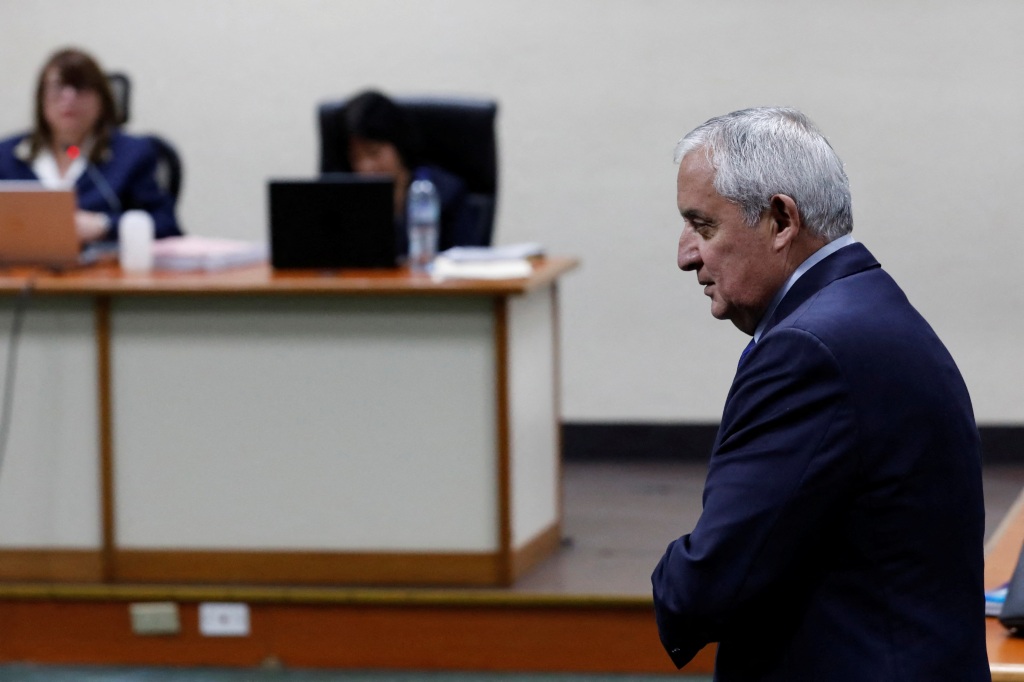Former Guatemalan President Otto Perez and VP sentenced in graft case
A Guatemalan court on Wednesday sentenced both former President Otto Perez and his vice president, Roxana Baldetti, to 16 years in prison each in a graft case years after explosive corruption revelations forced the two out of office early and into prison.
The pair were found guilty of illicit association and customs fraud, but were acquitted on a charge of illicit enrichment.
Perez, who was president of Guatemala from 2012 to 2015, has spent the last seven years in prison awaiting a verdict in the case. Baldetti was sentenced to more than 15 years in prison in 2018 in a separate fraud case.
Perez, a 72-year-old retired general who took office promising to crack down on crime, was forced to resign with just four months left in his term amid protests over corruption scandals.
“All that’s left is to appeal,” Perez told reporters during a break in the trial, adding he felt “cheated” because the conviction was made “without a shred of proof.”
Perez and Baldetti were accused of leading a customs fraud network that stole some $3.5 million in state funds during their administration, with both Perez and Baldetti accused by investigators of receiving hefty cuts.
Investigators had charged that the two led a scheme in which importers paid bribes to avoid paying customs duties. More than two dozen others have been charged in the case.
Perez was ordered to pay $1.10 million while Baldetti was fined $1.06 million on Wednesday.

The case, known as “La Linea,” was originally investigated under the now-defunct International Commission Against Impunity in Guatemala (CICIG), backed by the United Nations.
Guatemala expelled the head of the CICIG, Colombian Ivan Velasquez, in 2018 after his repeated attempts to investigate then-President Jimmy Morales and after jailing dozens of politicians and businessmen.
The next year, Morales let the mandate authorizing the CICIG’s operations expire, shuttering the commission. In 2021, Guatemalan investigators began to target judges, prosecutors and journalists for having collaborated with the CICIG, forcing many into exile.
Since then, several of those implicated in corruption cases investigated by the CICIG have been freed and the CICIG’s findings have been annulled. Velasquez this year became Colombia’s minister of defense.
Read the full article Here


